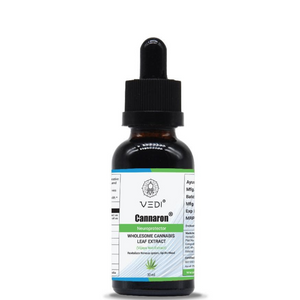Ayurvedic Treatment for Muscle Pain: Natural Remedies for Relief

Muscle pain, also referred to as myalgia, is a common health concern that affects people of all age groups. It may result from overexertion, poor posture, injury, or underlying health conditions.
Ayurveda, an ancient Indian medical science, provides effective remedies and holistic approaches to alleviate muscle pain naturally and sustainably.
What is Muscle Pain or Muscle Spasms?
Muscle pain is an unpleasant sensation that occurs due to strain, inflammation, or injury to muscle tissues. Muscle spasms refer to sudden, involuntary contractions of a muscle or group of muscles, often causing discomfort or pain.
Ayurveda identifies Vata Dosha as the primary factor responsible for muscle pain and spasms, as it governs movement and nerve impulses in the body.
Symptoms of Muscle Pain
- Stiffness and soreness in muscles
- Swelling and inflammation
- Difficulty in movement
- Weakness in the affected area
- Cramping or spasms
Causes of Muscle Pain
- Overuse or injury during physical activities
- Poor posture or ergonomics
- Stress and anxiety
- Nutritional deficiencies, such as low magnesium or vitamin D
- Underlying conditions like arthritis, fibromyalgia, or chronic fatigue syndrome
Commonly Affected Areas of Muscle Pain
Muscle pain can occur in any part of the body, but the most frequently affected areas include:
- Back: Often caused by prolonged sitting or heavy lifting.
- Legs: Resulting from overexertion or poor circulation.
- Chest: Linked to overuse of chest muscles or stress.
- Hips: Common to individuals with sedentary lifestyles.
- Tendons: Pain due to strain or repetitive movements.
Ayurvedic Perspective on Muscle Pain
In Ayurveda, muscle pain is primarily attributed to an imbalance in Vata Dosha. When Vata becomes aggravated, it disrupts the normal flow of energy, leading to stiffness, spasms, and pain.
Ama (toxic buildup resulting from improper digestion) and imbalances in Kapha and Pitta Doshas may also contribute to the condition. Ayurvedic philosophy emphasizes addressing the root causes of pain to restore harmony in the body.
1. Herbal Formulations
- Ashwagandha: Known for its anti-inflammatory properties, it strengthens muscles and reduces stress.
- Guggul: Renowned for its ability to alleviate inflammation and support joint health.
- Shallaki: Boswellia (Shallaki) is a potent anti-inflammatory herb that can effectively reduce muscle pain and swelling.
- Cannabis-Infused Medicines by Vedi Herbals: These formulations (Cannapain, Cannaflam, Cannaron) utilize the therapeutic potential of cannabis to provide natural pain relief, reduce inflammation, and relax muscles effectively.
2. Panchakarma Therapies
- Snehana (Oleation): External application of medicated oils to nourish, lubricate, and relax muscles.
- Swedana (Sudation): Steam therapy to eliminate toxins and alleviate muscle stiffness.
- Agnikarma: A heat-based therapy effective for managing chronic and localized pain.
3. Diet and Lifestyle Modifications
- Incorporate anti-inflammatory and antioxidant-rich foods such as turmeric, ginger, and leafy greens.
- Avoid cold, processed, and heavy-to-digest foods that may aggravate Vata Dosha.
- Maintain an active lifestyle with moderate physical activities and yoga to enhance flexibility and strength.
4. Yoga and Exercises
- Yoga Asanas: Poses like Bhujangasana (Cobra Pose), Balasana (Child’s Pose), and Trikonasana (Triangle Pose) help stretch and strengthen muscles.
- Pranayama: Breathing exercises such as Anulom Vilom and Bhramari help reduce stress and promote overall healing.
Natural Ways to Ease Muscle Pain
Ayurveda also recommends simple home remedies for effective pain management:
- Hot and Cold Compress: Alternating hot and cold packs can relieve pain and reduce inflammation.
- Ice it down: Applying ice packs helps reduce swelling and numbs the pain.
- Massage Therapy: Use warm sesame oil or medicated oil to improve blood circulation and relax muscles.
- Mustard oil rub: Mustard oil, with or without camphor or tulsi oil, can help warm and soothe sore muscles.
- Relaxation techniques: Meditation, deep breathing, and warm baths can help ease muscle tension.
Conclusion
Vedi Herbals offers a comprehensive Ayurvedic treatment for muscle pain and a holistic approach to managing discomfort. By focusing on herbal formulations, Panchakarma therapies, dietary adjustments, and yoga, Ayurveda addresses not just the symptoms but the root causes of pain. Vedi Herbal’s Ayurvedic solutions are designed to help you achieve lasting relief and a balanced, pain-free life.
Embrace the wisdom of Ayurveda and experience the harmony of natural healing for a healthier, pain-free tomorrow.
References:
FAQ
Question 1 : Can Ayurvedic treatment help with chronic muscle pain?
Answer: Yes, Ayurvedic treatment can effectively help with chronic muscle pain by addressing the root causes, such as dosha imbalances, inflammation, or toxin buildup (Ama) in the body. Key approaches include: Herbal Remedies, Panchakarma Therapies, External Applications of oils, Dietary Adjustments, and Lifestyle Practices. Consult a qualified Ayurvedic practitioner for a personalized treatment plan.
Question 2: Are there specific oils for muscle pain in Ayurveda?
Answer: Yes, Ayurveda offers specific oils for muscle pain relief, known for their anti-inflammatory and analgesic properties. Mahanarayan Tailam and Dhanwantharam Tailam are commonly used for reducing muscle stiffness and improving mobility. These oils, often used in massages, improve blood circulation, relax the muscles, and promote healing. Cannaflam Oil provides effective relief for chronic and acute pain. Cannaflam oil is for ingestion purposes and can also be applied topically as and when required.
Question 3: Can Ayurveda treat sports-related injuries?
Answer: Yes, Ayurveda offers effective solutions for sports injuries by reducing swelling, enhancing muscle recovery, and improving flexibility through treatments like herbal compresses and therapeutic oils.
Question 4: How quickly do Ayurvedic treatments show results for muscle pain?
Answer: The results of Ayurvedic treatments depend on the severity of the pain, but many people experience relief within a few days to a couple of weeks with consistent use.
Question 5: How does stress contribute to muscle pain, and can Ayurveda help?
Answer: Stress can lead to muscle tension and pain. Ayurveda addresses this by calming the mind and body through practices like meditation, herbal remedies, and massages.









